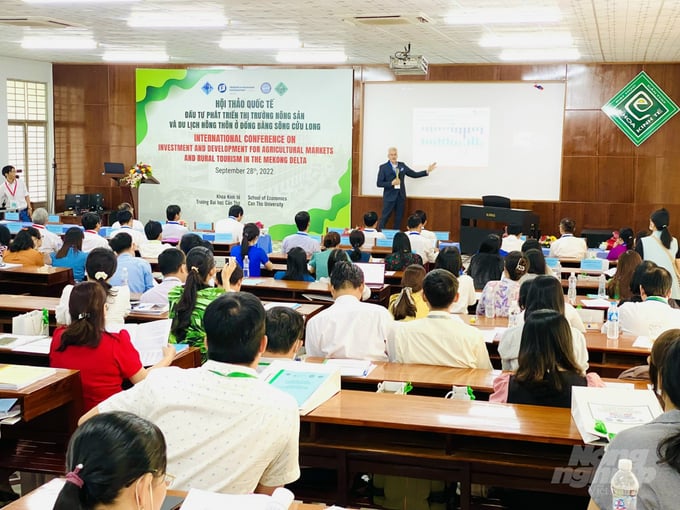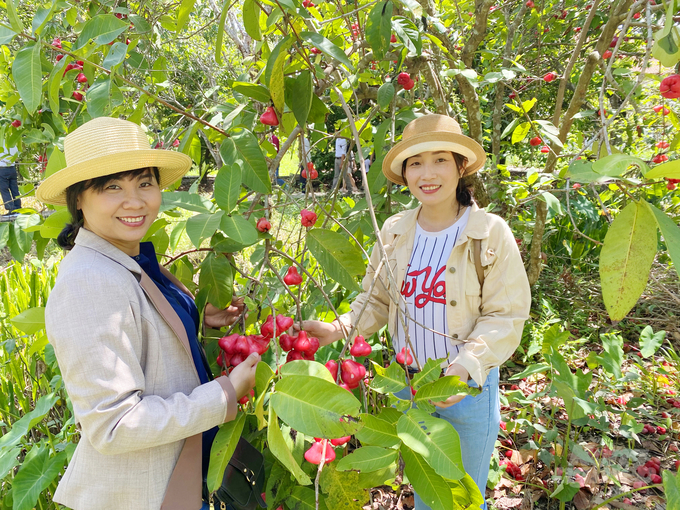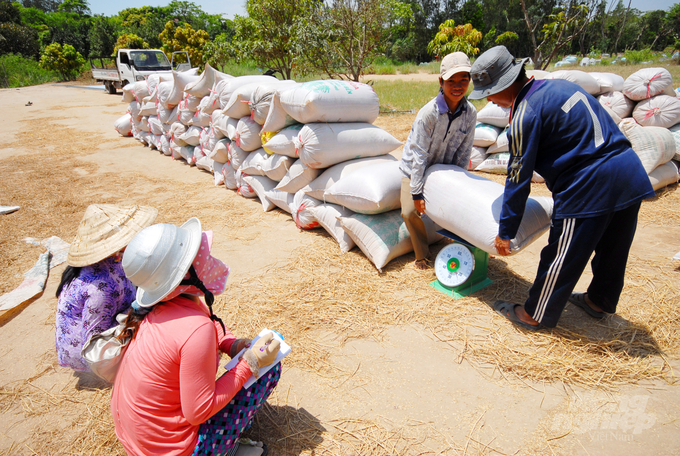May 19, 2025 | 13:19 GMT +7
May 19, 2025 | 13:19 GMT +7
Hotline: 0913.378.918
May 19, 2025 | 13:19 GMT +7
Hotline: 0913.378.918

International Conference on Investment and Development of Agricultural Products Market and Rural Tourism in the Mekong Delta. Photo: Le Hoang Vu.
Can Tho University, in collaboration with the Union of Friendship Organizations of Can Tho City, the Friedrich Naumann Foundation Institute (FNF/Germany) in Vietnam has just organized an international conference "Investment and development agricultural markets and rural tourism in the Mekong Delta". The conference was attended by more than 130 representatives of departments, scientists inside and outside the Mekong Delta region, experts, and scientists from Germany and Indonesia.
The Mekong Delta specializes in the country's socio-economic development strategy. This is not only the country's largest critical economic region for agriculture, fishery, and fruit production but also a cultural area imbued with traditional identity, with a lot of potential and resources to attract investment and development of the agricultural market and rural tourism.
However, in recent years, agriculture in the Mekong Delta has faced many difficulties due to climate change and risks due to market fluctuations.
The conference was organized to share and recognize experiences in investing in developing agricultural product markets in the Mekong Delta, rural tourism in the Mekong Delta and other regions in Vietnam, and the current globalization context.
Currently, the trend of agricultural product market development in the new context and rural tourism is also receiving attention from local authorities to commit themselves to policy formulation and regional development in the global context and revolution 4.0.

The Mekong Delta is a critical agricultural production area of the country, contributing most of the rice, fruit, and aquatic products for export and ensuring food security. Photo: Le Hoang Vu.
Mr. Nguyen Van Hong, Vice Chairman of Can Tho City People's Committee, said that Can Tho is a city directly under the Central Government, with a critical strategic position, the gateway to the lower Mekong region, and plays the role of trade, service, human resource training in science and technology, regional health center. Also, Can Tho is an essential economic trade hub connecting the Mekong Delta region with the whole country and internationally.
The Mekong Delta is a critical agricultural production area of the country, contributing most of the rice, fruit, and aquatic products for export and ensuring food security. The Mekong Delta also has excellent potential for rural tourism development. However, the possibility of the Mekong Delta has not been fully exploited, not guaranteeing farmers a commensurate income.
At the seminar, experts analyzed, proposed many solutions, and proposed practical orientations to arouse the potential of attracting investment in developing agricultural products market and rural tourism towards the goal of sustainable development for the entire Mekong Delta region, including market solutions to stabilize rice prices for farmers, the development of organic agriculture, and the trend of consumers' access to clean agricultural products. Local marketing factors associated with tourism, the impact of destination image on visitor satisfaction.

The group sale solution is a collective action by rice farmers to take advantage of market opportunities and avoid being negatively affected by inherent defects. Photo: Le Hoang Vu.
Ministries, sectors, and localities in the Mekong Delta need to promote information and propaganda to raise awareness and actions of people and businesses in preserving and promoting the potential strengths of agricultural development associated with tourism, as well as preserving the natural landscape; Strengthening linkages between stakeholders to improve the quality of agricultural products and regulate production with appropriate areas and outputs, improving the value chain of the commodity industry: Promoting forms of community-based tourism associated with agriculture, traditional craft villages in the countryside...
Sharing about market solutions to stabilize the selling price of rice for farmers in the Mekong Delta, Assoc. Prof. Dr. Le Khuong Ninh, Can Tho University, said that developing a rice depository system, reservation, futures markets, and group sales are necessary.
The deposit storage system helps manage rice price risk by creating more favorable opportunities for farmers to access credit by providing collateral, which is easy to appraise and reliable. It enhances the efficiency of marketing rice as a clearinghouse to help enforce property title and sales contracts. A reservation or a futures contract will help farmers avoid selling rice quickly, thereby controlling price risk.
The group sale solution is a collective action by rice farmers to take advantage of market opportunities and avoid being negatively affected by inherent defects. Specifically, selling rice in groups helps farmers reduce transaction costs, gain necessary market information, and enhance opportunities to access new techniques and penetrate high-value markets.
Translated by Ha Phuc

(VAN) 14 out of 35 domesticated elephants in Dak Lak province have had their living conditions improved, with 11 of them currently participating in the non-riding elephant tourism model.

(VAN) Muong Nhe Nature Reserve hopes that being upgraded to a national park will lay the foundation for forest protection efforts to be carried out in a systematic, modern, and sustainable manner.
/2025/05/16/3923-2-171845_52.jpg)
(VAN) Lower costs, higher yields, and improved soil quality are outstanding benefits that soybeans bring when integrated into the crop rotation system.

(VAN) The 'For a Green National Environment' programme aims to promote a green lifestyle, support businesses in implementing ESG practices, and turn Net Zero commitments into concrete actions.

(VAN) Cold-barn systems efficiently manage environmental and temperature conditions, which aids in the prevention of respiratory diseases in pigs and protects them from the vectors that transmit African swine fevers.

(VAN) To tackle challenges, the project 'Addressing key technical bottlenecks in the grouper supply chain in Vietnam' has been underway since 2024.

(VAN) The project 'Disease-Resilient and Sustainable Cassava Production Systems in the Mekong Region', funded by the Australian Center for International Agricultural Research (ACIAR), is being implemented from 2024 to 2028.